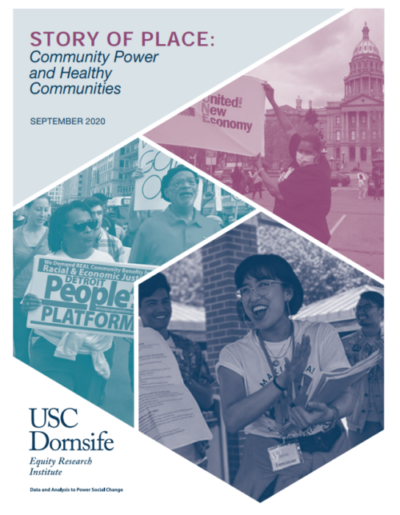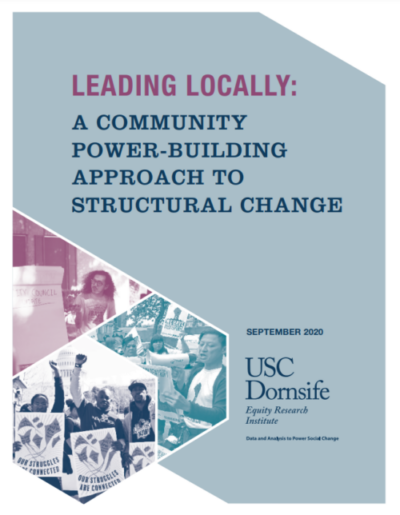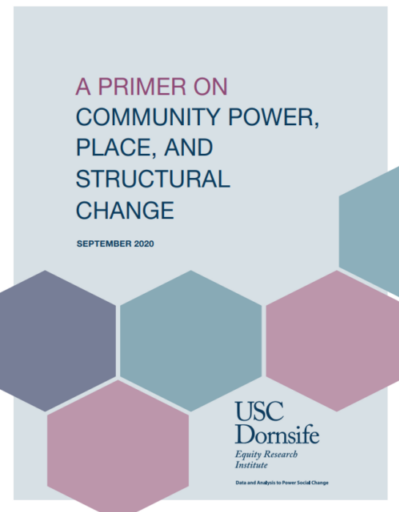About the reports
Lead Local was a collaborative research project bringing together well-respected local power-building leaders in the fields of community organizing, advocacy, and research. From 2018 to 2020, Lead Local sought to answer the question: How does community power catalyze, create and sustain conditions for healthy communities?

Story of Place: Community Power and Healthy Communities
By Manuel Pastor, Jennifer Ito, and Madeline Wander
September 2020
 Leading Locally: A Community Power-Building Approach to Structural Change
Leading Locally: A Community Power-Building Approach to Structural Change
By Manuel Pastor, Jennifer Ito, and Madeline Wander
September 2020
This report will look at community-led structural reforms as well as to investigate the story of community power building in place—in particular, 16 places across the country. Indeed, we know that individual and community health is shaped by the conditions of a given locality—and we set out to explore such conditions as well as the capacities and power-building strategies that are needed to catalyze, create, and sustain healthy communities.

A Primer on Community Power, Place, and Structural Change
By Manuel Pastor, Jennifer Ito, and Madeline Wander
September 2020
This brief examines how health equity can be achieved through a community power-building approach to structural change. While traditional health service providers treat people as patients, clients, or consumers, the field of community power treats people as agents of change.
Community power building is about building the ability of communities most impacted by structural oppression to set the agenda toward changing systems to create and sustain healthy communities—and the ability to achieve that agenda.
In short, a community power-building approach to health equity addresses structural issues and does so in ways that address powerlessness both in the process and as an end-goal.
Key Findings
- There is a tendency to focus on narrow investments in immediate policy victories or short-term initiatives, rather than on long-term power. At the end of the campaign, groups retreat back to their issue or constituency siloes and the momentum and opportunities are lost to focus on the implementation of the hard-fought policy or to pivot to new issues.
- A related problem is an emphasis on government—rather than governance. Traditional foundation-funded strategies are usually about winning government priorities and policies. We are challenging the field to think beyond policy wins and to consider changes in the broader institutional and community contexts that facilitate conditions for an equitable society.
- Lastly, there is a lack of data-driven, systematic, and action-oriented tools that provide a comprehensive and shared understanding of the full terrain on which social change efforts are fought and victories secured and protected—and, relatedly, what capacities are needed.



